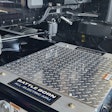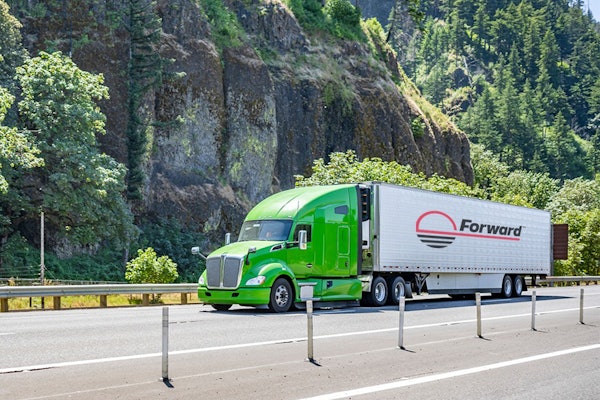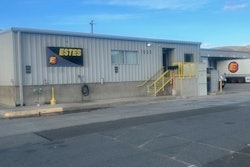Aperia CEO Josh Carter said Sunday during a press conference at the Technology & Maintenance Council (TMC) Annual Meeting in Nashville, Tenn., that his company took four years designing and perfecting its Halo bolt-on tire device before officially introducing it in the market.
On Monday it became clear the trucking industry took considerably less time to take notice, as Aperia and Michelin formally introduced Michelin Auto Inflate, powered by Halo, as a new tire inflation subscription offering to all Michelin fleet customers.
“Pretty much a year ago today [Michelin] approached us. They saw what we were doing and knew that inflation was of interest with Michelin growing its service business,” says Carter. “They were looking for a simple solution and that’s what we stress, simplicity. It was a natural fit.”
“We are out selling now and the product will be available through Michelin on April 1,” says Adam Murphy, vice president of marketing for Michelin Americas Truck Tires. “Right now we are working directly with fleets as part of our strategy to be a direct solutions provider for fleets.”
He adds, “Michelin Auto Inflate is another service for us and will allow us to bring total solutions to our customers.”
A single-unit device that is bolted on to a wheel in less than 15 minutes with minimal tools, Michelin Auto Inflate, powered by Halo, can save fleets an estimated $2,400 per tractor-trailer annually by reducing tire-related downtime events, extending tire life, improving fuel economy and increasing safety, the company says.
Halo devices will cost $15 per unit per month, Michelin says, and can be retrofitted on existing vehicles or as an add-on to new equipment. Halo works with duals and wide-base single tires, Aperia says, and measures air pressure on each wheel rotation.
Both sides are optimistic about the partnership, and its benefit to Michelin’s fleet customers.
“We are really convinced that this is an elegant solution for what is a very, very significant challenge for fleets,” Murphy says.
“We waited to launch [Halo] until we knew we had the product right, and that philosophy lends to our market positioning and customer approach,” Carter says. “We think a lot about how we are going to be able to deliver a premium customer experience.”











